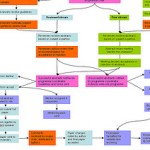I had my fees cut last week in a small Chapter 13 case. The cut ($500) wasn’t large in absolute terms.
But the wound is deep and will continue to bleed into my attitude about what I do as a professional.
To borrow a phrase from my kids, I feel profoundly disrespected.
The case, filed by another lawyer, had been targeted for dismissal. It had lingered unconfirmed for many, many months and the initial attorney was leaving bankruptcy practice.
Unlike many bankruptcy lawyers, I’m willing to come into a case mid stream and try to salvage a bad situation. I hate to see clients take a hit traceable to poor representation.
In this case, I subbed in, found some mistakes that, once corrected, allowed confirmation, and sought to be paid for the work.
The result in the case, I thought, was stellar.
Not so fast
The judge’s issue with my fee application was the relative size of fees incurred to prepare a separate, customized fee application, draft a notice, and appear at a hearing 15 miles from my office requiring travel during rush hour.
The court has a “guideline” that the preparation of the fee application should cost no more than 5% of the fees sought. That works if the fees are $10,000 or more. The rule was probably crafted with Chapter 11 reorganization cases in mind.
When the fees are a couple of thousand dollars, 5% becomes an impossibly small number relative to the tasks required.
And that’s the bitch here: the Bankruptcy Code requires a written fee application, detailing the services provided, including contemporaneous time records, and an actual hearing, whether or not there is an objection.
So, the work is mandated and the compensation is capped.
And the cap doesn’t fit small consumer cases.
This happens yet in a world where the Bankruptcy Code of 1978 sought to compensate bankruptcy professionals at market rates, comparable to other specialists. The Code sought to move away from the “bankruptcy lawyers as second class professionals” thinking that prevailed before the Code.
It ain’t easy
It is my view that most judges sorely underestimate the challenges of representing debt-ridden consumers. The people challenges are as great or greater than the legal challenges.
And, like this judge who acknowledged that the cut to my fees wasn’t fair, did it anyway.
Most bankruptcy judges were never self employed, never limited to eating only what they killed, metaphorically. Most never represented a below median income, English as a second language debtor. And fewer ever stepped into a floundering consumer case and made it work.
What goes around
If the bankruptcy bench shrugs off the impact on capable debtor’s lawyers of underpaying counsel, judges will find the bar in their courtrooms filled with the indifferent and the incompetent.
The wound to bankruptcy system will be self inflicted.
I cannot recommend this specialty to any lawyer who has to be self supporting.






